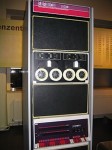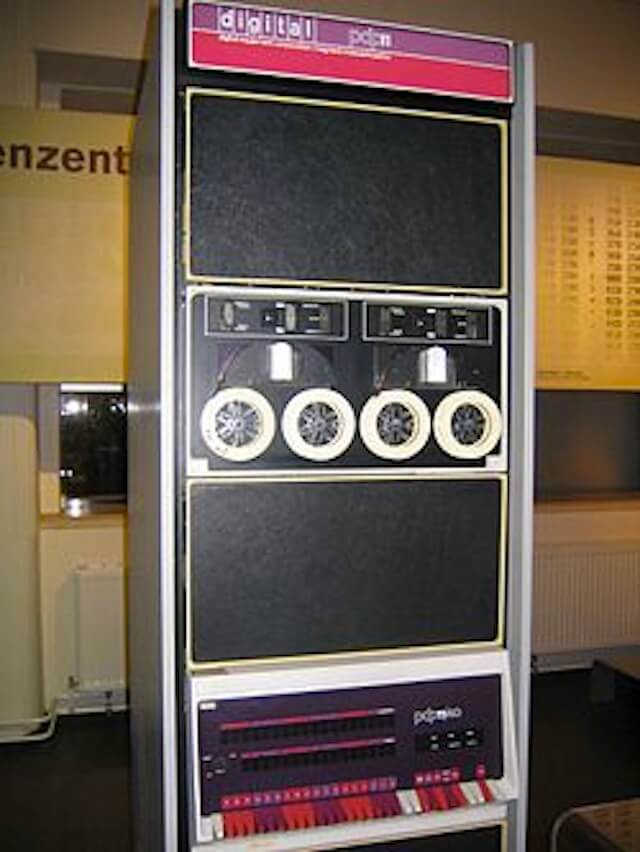
Each day last year, I posted a Geek Fact for that day. A Geek Fact is something geeky that happened on that day in history. I have to say that it was a pretty interesting exercise. I learned many things that I ordinarily wouldn’t have. For the 366 days of 2012, 464 Geek Facts were posted. On average, that’s roughly one each day with an extra posted each 4th day.
All of the Geek Facts were categorized by topic to see what the most common topic. The most prevalent topic will come as no surprise as well — computers. 166, or almost 36%, of the Geek Facts were about computers —- from behemoth mainframes to desktops to laptops. It was pretty eye-opening to see how far we have come in a relatively short period of time.
The second most common topic was space, with 99, or a little over 21%, of the Geek Facts. From the beginnings of the Space Race where animals preceded humans in space to the Apollo 11 moon landing to the end of the Shuttle program, we have seen some amazing accomplishments. With such amazing highs there were also some heart-wrenching lows such as the Apollo 1 fire (1967), the Challenger explosion (1986) and the Columbia explosion (2003) as well as the heart-stopping Apollo 13 mission in 1970.
Other Geek Fact topics were inventions (56), astronomy (34), mobile devices (22), science (21), technology (19), mathematics (17), telephone (9), calculators (8), radio (8) and flight (5).
Some of the more interesting Geek Facts related to computers are:
- February 14, 1924 – International Business Machines (IBM) was founded by Thomas Watson.
- June 21, 1948 – The first stored computer program was run, on Manchester Mark I.
- June 14, 1951 – The first commercial computer, UNIVAC I, entered service at the Census Bureau.
- September 20, 1954 – The first program written in FORTRAN was executed.
- February 28, 1956 – Jay Forrester was issued a patent for computer core memory.
- July 4, 1956 – The Whirlwind at Massachusetts Institute of Technology (MIT) became the first computer to use a keyboard to allow direct user input. Some computers didn’t have keyboards?
- October 1, 1962 – The world’s first academic department of computer science was established at Purdue University.
- May 1, 1964 – The first BASIC computer program was run at Dartmouth.
- July 18, 1968 – Andy Grove, Gordon Moore and Robert Noyce found microprocessor manufacturer NM Electronics, later known as Intel.
- December 3, 1968 – Control Data Corporation (CDC) announced the CDC 7600, considered by many to be the first true supercomputer.
- March 13, 1970 – Digital Equipment Corporation (DEC) announced the PDP-11 minicomputer.
- December 19, 1974 – The Altair 8800 microcomputer kit went on sale in the U.S. as a do-it-yourself computer kit. Later that month, it would appear on the cover of Popular Electronics.
- December 8, 1975 – The Byte Shop, the first retail computer store chain in the U.S., opened. It was the first retailer of the Apple I, ordering fifty units.
- March 4, 1977 – The first CRAY 1 supercomputer was shipped.
- June 5, 1977 – The first Apple II was sold.
- September 1, 1977 – The first TRS-80 Model I computer went on sale. My first computer. My husband bought for me as a wedding present. No jewelry for me. I wanted hardware! I was a geek already back then.
- May 3, 1978 – The first documented spam email was sent. We all rue that day. Now it seems that we get more spam than ‘real’ email.
- February 16, 1978 – The first computer Bulletin Board System (BBS) went online.
- April 24, 1981 – The IBM PC was introduced. I was the first (and only for a while) to get a PC at work. Some people had no idea what I would do with it.
- September 19, 1982 – The emoticon was born. 🙂
- April 17, 1986 – IBM produced the first megabit-chip.
- August 25, 1991 – Linus Torvalds released his first version of the Linux operating system.
- April 30, 1993 – The source code for the World Wide Web was released into the public domain.
- December 2, 1993 – NASA launched Endeavour with an IBM ThinkPad 750 on board.
- February 2, 1996 – IBM’s Deep Blue defeated chess champion Gary Kasparov.
- January 26, 1998 – Intel launched the 333 MHz Pentium II chip.
As you can see, this is quite a diverse set of facts, from the Cray I to the IBM ThinkPad, that shows how far we have come.
The next topic in the series will be the Geekiest Day.
To read the first Geek Facts Retrospective article in the series: Part 1 – Geek Facts Retrospective – My Favorite Geek Facts
